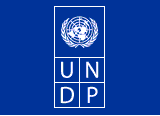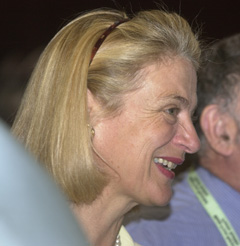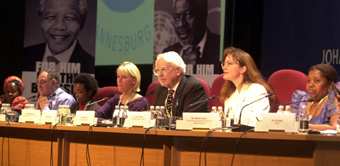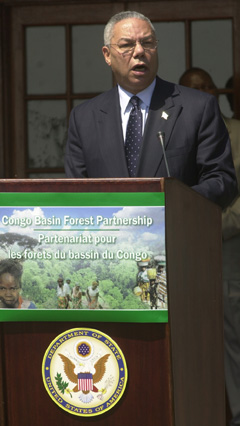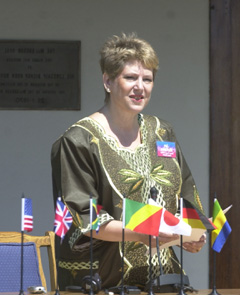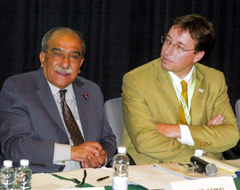|
Congo Basin Forest Partnership
Presented by the US government
Colin Powell, US Secretary of State, noted the importance of tropical forests and their high rate of destruction. He stated that the Congo Basin Forest Partnership (CBFP) will: promote sustainable use of forest resources; create and manage protected forest areas; combat illegal logging and other unsustainable activities; and promote sustainable livelihoods of the peoples in the region. Powell emphasized the participation of international organizations and of the six Congo Basin governments in the initiative, and stressed the importance of partnership and cooperation in promoting sustainable development in the Congo Basin.
Denis Sassou-Nguesso, President of the Republic of Congo, underscored the need for achieving sustainable development in the Congo Basin, and highlighted the political commitment expressed in the declaration of the Yaoundé Forest Summit. He stressed the importance of stakeholder involvement in the CBFP, and underscored the necessity of regional and international cooperation.
Poul Nielson, EU Commissioner for Development and Humanitarian Assistance, stated that the CBFP should aim at improving governance and reducing poverty in the region. He suggested that the Partnership build on the results of the Yaoundé Forest Summit, and be closely linked with Type I outcomes of the WSSD. Nielson called for a global action plan on forest law enforcement, governance and trade, and highlighted the need to move from forest monitoring to policing.
Ronnie Kasrils, South African Minister for Water Affairs and Forestry, noted South Africa's commitment to the Partnership, and highlighted the importance of conserving the Congo Basin forests.
Russell Mittermeier, Conservation International, stressed the importance of the Congo Basin for biodiversity, particularly for great apes. He stressed that the Partnership should conserve biological and cultural diversity, and underscored the need to fight commercial bushmeat hunting. He announced that Conservation International, the Wildlife Conservation Society and WWF would support the partnership with USD 37 million.
|

